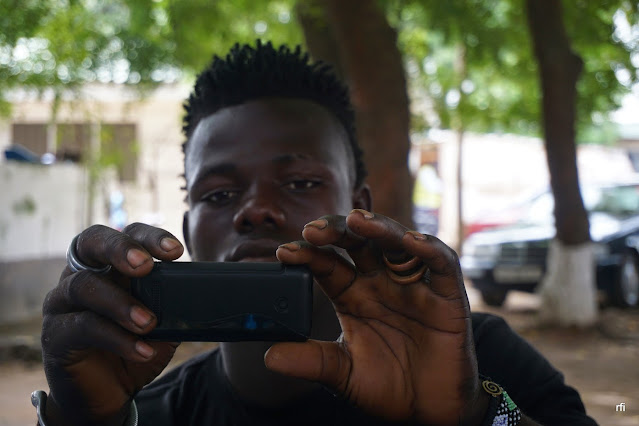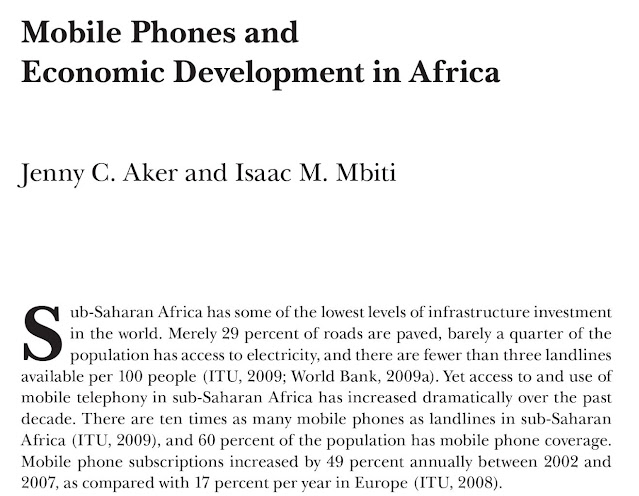In 2013, Statistica reports one hundred and seventy thousand mobile phone towers were operating in Africa.
With 170,000 cell phone towers, Africa leapfrogged the telephone poles and landlines in a decade. Who made that possible? Africa's Tech Sector.
The cost of a new cell phone tower is between $100k ($110k in South America) and $250k (in the USA, where siting and zoning and labor costs are higher). So let's assume the lower range, $100k... times 170,000 African mobile phone towers...
$17 billion dollars worth of mobile phone towers were invested in (many of them "secondhand") on the African continent between 1995 and 2012. What does World Bank say about new cell phones sold to Africans in that period?
Twenty three years ago, a World Bank report said that secondhand equipment was necessary to establish a "critical mass of users" to make telecommunications infrastructure investable. So let's look closely at those mobile phone towers.
The 2010 Tufts University report by Jenny C. Aker and Isaac M. Mbiti was published the same year that "Project Eden" was launched by Interpol, based on the statistic published repeatedly by Basel Action Network - that 80% of the used mobile phones imported by Africans were recycled in "primitive" conditions in "remote fishing villages" like Agbogbloshie.
Mobile phone subscriptions in sub-Saharan Africa increased 49% annually between 2002 and 2007... and in 2011, the Council On Foreign Relations credited the explosion in mass communications to the affordability of used mobile phones.




